- Home
- Michael P. Spradlin
Blood Riders Page 8
Blood Riders Read online
Page 8
“Yes, sir, he said to tell you he’ll meet you in the middle. I think he liked your idea,” McAndrews said, drawing his carbine from its holster on his saddle. Together, they waited as their horses pawed at the ground and grazed on the grass.
Shortly after sunrise Hollister heard the sounds of the battle start. It was always a puzzle to Jonas how the fighting commenced with the first quiet pops of the long rifles, usually the Enfields the Rebs used. Then the cannon started a few seconds later and it became a cacophony of noise, indistinguishable from either side. Over the sound came the shouts of thousands of men, the Confederates raising their rebel yell while the Union soldiers shouted back. There was never a break in the shouting, as it quickly became a constant roar: the screams as the shooting intensified, the wails of the men as they fell wounded, and the whining cries of dying horses joined in the chorus.
Hollister waited, fidgeting in the saddle. He could not see into the town, as the orchard was densely overgrown. He heard the sound of cavalry approaching from the west. He wondered if it was Custer, and then for a moment worried the Rebs had somehow gathered themselves and sent reinforcements, but it couldn’t be. Sheridan and his 15,000 troops were north.
The first Reb came out of the orchard at a dead run and almost collided with Hollister’s horse. He was startled to find a line of Union soldiers there, but collapsed when a bullet tore through his chest, skidding to a stop a few feet in front of Jonas.
“Hold . . .” Jonas started to say, but his words trailed off when a bullet whizzed past his left ear. Everything turned to chaos as his men opened fire on an orchard that had come alive with the enemy. He drew his Colt, but saw immediately that his men would be overrun. A wave of gray uniformed soldiers flooded through the trees and the fencerow behind him blocked any hopes to maneuver away.
He had no idea how many times his revolver had clicked on an empty chamber before he realized it was empty.
“Sir, there’s a damn lot of rebels!” Mac shouted to him. And he was right. There were too many. He was going to get his men killed if he didn’t do something quickly.
“Mac, sound the order, about face, retreat! Get the men through that fencerow and get them out of here, go west and regroup on the bridge road. Hurry!” He gave the order to his lieutenant. His pistol was empty and he drew his carbine, as bullets flew everywhere. The wall of fleeing Rebs had pushed his troopers up against the fencerow and before they could move, the ground had become a teeming mass of men and horses, and still more Confederates poured out of the orchard.
“Retreat!” Hollister shouted. “Bugler! Sound retreat.” Nothing happened because his bugler had been killed. Hollister saw three Confederate soldiers riding horses back toward the town, having pulled his troopers from them. It had all turned to shit. God damn Custer.
Hollister spurred his horse, pushing the nervous animal through the mass of men. Retreating to the south was out. “Forward! Move forward!” he shouted. He found some clear space and rode back and forth, exhorting his men. He wanted them to follow him into the orchard to fight their way through the retreating rebels. A few of his men saw him in the confusion and understood his order. But the chaos seemed insurmountable and he saw two more of his men go down.
“Mac! Turn the men! Forward into the orchard! Hurry!” He shouted at Mac and the lieutenant rose in his saddle and shouted, “Forward through the orchard! Return fire! Forw—”
His words died on his lips as a minié ball entered just below his left eye. Mac catapulted off his horse, his body falling to the ground, disappearing among the gray uniforms.
“MAC!” Hollister shouted “NO!” He was about to spur his horse toward the fallen lieutenant, but a hand reached out and grabbed the halter of his mount.
“Sir! No, sir, we’ve got to get into that orchard sir, come on now. The lieutenant is dead, sir, you need to rally the men.” It was a grizzled sergeant named Dawson, from B Company, who had stopped him.
The next hour was lost in Hollister’s mind. He vaguely remembered following Dawson into the orchard. His officers had finally understood what he was asking and had rallied the men through the trees until they reached the south end of the village and the advancing Union line. Custer had routed the Confederates out of the town, just as he predicted, but the general’s actions had driven the Rebs right into Hollister’s regiment, where his men had been chewed up like beef in a meat grinder.
When the buzz of the fight subsided, Hollister returned to the fencerow. It was littered with dead and dying rebels and the medical corpsman had gathered the bodies of his men who had fallen. Thirty-seven bodies were lined in the shade covered by blankets. Hollister sat on his horse staring at the corpses, feeling the anger grow; a small nugget of fire in the center of his chest. No one approached him, asked him for orders, or bothered him. The look on his face was a warning for everyone to stay away. After a while he turned his horse and rode hard for the Union camp.
A half hour later he arrived at General Sheridan’s camp. He could hear the sound of celebration coming from the large campaign tent. He handed the reins to a young private guarding the horses and entered the tent. The noise dimmed as the buzzing in his ears became louder. The edges of his vision turned red, and small arcs of light traveled across his eyes like a summer thunderstorm.
Custer sat at the end of a table, his hat off, revealing his long blond hair tangled with the yellow silk scarf about his neck. He was leaning back in his chair with his legs crossed while vanity oozed from his pores.
He heard the clump of Hollister’s boots behind him, and turned just in time to see the first blow coming. It staggered him and he slumped to the ground, landing awkwardly on his ass. Hollister kicked the chair out of the way and leapt on the prone man.
“You arrogant son of a bitch,” Jonas shouted, and landed another punch on the point of Custer’s chin. His arm was cocked for another swing, but it never landed because someone grabbed him, and he felt himself being lifted to his feet. Custer lay on the ground stunned, blood seeping from his mouth and a cut on his chin.
“Fucking bastard . . . you no-good prick!” Hollister shouted.
“Colonel Hollister!” Jonas came out of his rage at the sound of General Sheridan’s voice. He didn’t recognize the officers holding him by the arms but the general stood between him and Custer, who still lay on the ground.
“Jesus Christ, Hollister,” the general said. “Are you going to take a swing at me, Colonel?” Jonas’s breath came in ragged gasps but he shook his head.
“Then let him go,” the general said. “Good God, man. What the hell have you done?” Sheridan examined the prone body of Custer on the floor of his tent. He nudged him with the toe of his boot. Sheridan was a short man, no taller than five and a half feet, hence his nickname “Little Phil.” He was as cocky as a rooster and his voice had always sounded how Hollister thought God’s would sound, deep and resonant with just the slightest trace of an Irish brogue. “Sergeant! Get the general to the surgeon. Move it!”
Hollister stood stock still, all the fight gone out of him. He knew he was in trouble, but he didn’t care. All he could see was poor Mac, lying on the ground, his face caved in where the bullet had struck him. A sergeant and two privates entered the tent and lifted Custer from the ground. Hollister didn’t know it then, but that was the last time he would ever see the man.
Finally he was alone with General Sheridan. Little Phil stood with his back to Jonas, massaging his temples.
“Jesus Christ, Jonas! What the hell was this all about?” Hollister stood silent. Sheridan waited for him to speak, finally spinning on his heel and confronting him. “God damn it, Colonel, you’ve got one chance here. You better tell me what happened in the next sixty seconds, or so help me God, I’ll see you shot!”
Hollister instinctively came to attention. He threw his shoulders back and kept his arms straight at his sides.
“Sir! I was ordered by General Custer to the south of the orchard to attack the rebels from the
rear . . . I . . . ”
“You what?” Sheridan stared hard at him, then the realization of what Custer had done washed over him. He sagged, and started pacing again. “God damn him, those weren’t my orders, I specifically told him not to divide his command! The yellow-haired bastard . . .” Sheridan began stalking back and forth. The general was a profane man, and also a bigot and a racist. None of those facts affected his ability as a brilliant cavalry commander.
“What happened?” he asked.
“We were overrun. I only had one regiment and there were at least four thousand rebels on the retreat. I lost thirty-seven of my men, General. Including Lieutenant McAndrews, sir . . .”
“Aw shit, not McAndrews! Kid was going to be something special,” Sheridan interrupted. Hollister went on.
“Sir, I pleaded with General Custer not to split the troops, but he assured me you had given the order.”
“That vainglorious sonuvabitch. Good Christ, Hollister . . .” General Sheridan’s face was a light shade of purple. “You should have come to me,” he muttered. Knowing full well Hollister had not had the time, nor would Custer have allowed him any such action. He would have viewed Hollister seeking confirmation of Sheridan’s orders as an affront to his command.
“Yes, sir,” Hollister said. It was the only answer he could give. This would be made out to be his fault, he was sure. He saw his mistake in physically attacking Custer. If he’d gone through the right channels, gotten Custer’s order on the record, he might have gotten somewhere. Now he was headed for a court-martial at least, a firing squad at worst. And if Sheridan didn’t have him thrown in the stockade, he would have to watch his back now for as long as Custer remained in the army. He wouldn’t let Hollister get away with this, no matter what the official outcome.
Sheridan didn’t say anything else for several minutes. Hollister thought the next words out of his mouth would be an order to surrender himself to custody.
“All right. I’ll deal with Custer. The thing is, Colonel Hollister, I can’t court-martial him or you. I believe you, Jonas. But this story can’t get out, or all of us will be fucked once Sam gets word.” Sam was General Grant, commander of the Army of the Potomac. “Sam can’t stand Custer and he only barely tolerates me because I win, the drunken bastard.”
“I know the skinny, shit-eating little prick wanted to be the one to chase the rebels out of the town and cut them up in the orchard so he could be the hero. And he put your men in the shitter along the way. He’s a pompous son of a bitch and we both know it. But he’s winning his fights. He’s all over the papers, and as much as Sam hates his guts, he likes the good publicity. Grant has the personality of a horse turd and can’t stand talking to the press. So he’s happy to have someone like that cocksucker Custer woo the reporters. If he’s court-martialed the press will crucify us.” Sheridan ran his hands through his salt-and-pepper hair in frustration. “Jesus Christ, man.”
“So that’s it, sir, he gets my men killed and that’s it? He gets away with it?” Hollister felt the anger welling inside him again.
“Grow the hell up, Colonel. That’s not it, and you goddamned well know it. Are you right? Yes of course, god damn it. But you’re going to take it. Go back to your regiment. See to your men and you leave Custer to me. I’m going to bust you but there won’t be a court-martial. Consider yourself one lucky bastard. Now get your sorry ass out of my sight. Report here at oh five hundred for staff meeting and orders.”
Hollister stood still, seething. He was about to open his mouth.
“Don’t you say a goddamn word to me, Colonel! Get out of my sight or swear to fucking God I’ll shoot you myself!” Sheridan put his hand on his sidearm for emphasis and dismissed Hollister with a wave, returning to his desk.
As mad as he was, he also realized he was lucky. He knew Sheridan thought highly of him, but he had no indication that the General held him in such regard. He was about to voice his thanks, when Little Phil interrupted him, turning back from his seat.
“So help me God, if you open your mouth you’ll be digging latrines until this war is over. Do you understand me? I want you gone, and I mean now.”
“Yes, sir,” said Hollister saluting smartly as he left the tent. He worked things over in his mind. The word of the dust-up spread through the camp like the clap. Men whispered and pointed at him as he walked back to his horse. He met no one’s gaze. Some of the men here were firmly in Custer’s corner and wouldn’t hesitate to give him a thrashing if he provoked them. Others knew Custer was dangerous. And as far as they were concerned, his beating had come far too late.
The next day Custer was absent from the staff meeting. Word had worked its way back to Hollister that the yellow-haired general had been unconscious for hours with a broken jaw. When the officers convened at Sheridan’s tent the next morning, no one mentioned the missing general, and Sheridan was his usual brusque self. Hollister had spent the evening writing letters to the families of the men who had died the day before, but as had happened before and would happen again before the war was over, he found there was little time to grieve. Orders were delivered, the battle plan discussed, and they were dismissed. The fight was forgotten for the time being. There was another battle ahead of them and it required complete focus.
The following week, Hollister was transferred to the 4 U.S. Cavalry. The 4 was regular army and kept him out of Custer’s orbit, and a little less than a year later, the war was over.
Custer secured his notoriety for chasing Lee to Appomattox Courthouse from the west. He never spoke to Hollister again. Jonas had narrowly avoided a career-killing mistake.
The army shrank rapidly with the war’s end. Hollister reenlisted and stayed in the 4. He had no intention of going home. Like most officers who stayed in the regular army after the war, he was reduced in rank to lieutenant and posted first at Fort Laramie. Sheridan was put in charge of the Indian wars and he made sure to keep Hollister away from Custer when it came to assignments. And then came that morning on the plains in Wyoming, where everything went wrong. There were times, as he wrote to everyone he knew during the first year inside Leavenworth, when he was certain his thrashing of Custer had kept some in the army from coming to his defense.
A sharp blast of the train whistle brought Hollister back to the present. He wondered if he would get used to the rickety motion of the car and be able to sleep. The events of the day still tumbled around in his mind like autumn leaves caught in a whirlwind. He had gone from digging holes in Leavenworth to being on his way west on a special assignment in a matter of hours. Then there were Pinkerton and his friend Van Helsing. What odd men they were. And he had dragged Chee along not knowing he came complete with a goddamn giant dog. It was a lot to grasp and he could only think of one thing to say before sleep over took him.
“Huh.”
Chapter Twelve
Hollister had slept in his clothes, which only contributed to his disoriented feeling when he opened his eyes the next morning. Waking up in a new place was something he hadn’t experienced in four years. There was a broad selection of outfits hanging on his cabin wall, much as Chee had found in his quarters, but he left them there and wandered out to the main car and found Pinkerton and Chee seated at a wooden table that appeared to open up out of the floor. The two of them were eating breakfast and another man Hollister didn’t know was spooning eggs out of a skillet onto a plate.
“Ah! Good morning, Major,” Pinkerton said. “Did you sleep well?”
“All right, I guess,” Hollister muttered.
“Have a seat. Dr. Van Helsing will join us shortly. In the meantime, Monkey Pete here is a fantastic cook. You’ll be willing to kill for a cup of his coffee before too long.”
Hollister studied the man with the skillet. He was short and skinny, like he hadn’t had food in weeks or months. Jonas bet he wouldn’t top 130 pounds even if he were holding a ten-pound sack of flour. His shirt was rolled up and his forearms were thick and roped with muscle. A curious expr
ession looked as if it had taken up permanent residence on his face, which was covered with a thick brown beard. Dark eyes peered through a pair of glasses perched on the end of a twisted nose, which looked as if it had been broken repeatedly. He noticeably limped around the table to shake Hollister’s hand, presenting one with twisted and broken fingers. Whoever this Monkey Pete was, he’d been through a couple different kinds of hell. His grip was strong though, and Hollister was amazed at the amount of strength on such a thin frame.
Hollister wondered about his broken-up fingers and hands. At West Point, cadets had been drilled in basic hand-to-hand combat, taught by a Master Sergeant Woodson, who had lost a leg in the Mexican War and could still whip every cadet on the campus. He had taught his students three things. First, anyone you meet in any situation is a potential enemy. Second, look at your opponent’s eyes. They will advise you of a man’s intentions if you learn to read them. And third, look at the hands. If somebody has cut up, scarred, twisted, or broken fingers you are probably in for a tussle. Hands get in that kind of shape from hard living, which usually includes throwing a punch or two. Hollister had never forgotten the lessons. He had studied Pinkerton’s eyes and hands, and the detective’s words and actions had since convinced Hollister that he was no one to be trifled with. Hollister wondered how this Monkey Pete had come to have his hands in such shape. He was sure there were some stories behind it.
“Pleased to meet you, Major,” he said.
“Monkey Pete?” Hollister asked.
“Yes, sir. Served in the artillery during the war. General Hunt gave me the name, after Pickett’s Charge at Gettysburg. Said I was crawling back and forth over them Howitzers like a monkey. ‘Monkey Pete’ he said. It stuck.”
“And how’d you find yourself on this train, Monkey Pete,” Hollister took a swig of the coffee and had to admit it was pretty good.

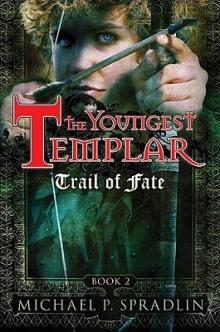 Trail of Fate
Trail of Fate Alcatraz
Alcatraz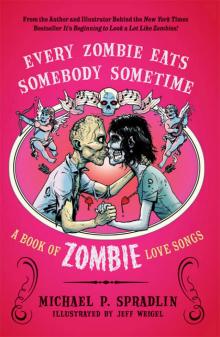 Every Zombie Eats Somebody Sometime
Every Zombie Eats Somebody Sometime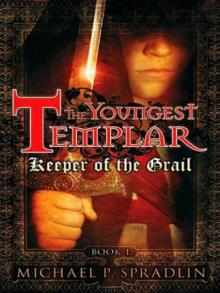 Keeper of the Grail tyt-1
Keeper of the Grail tyt-1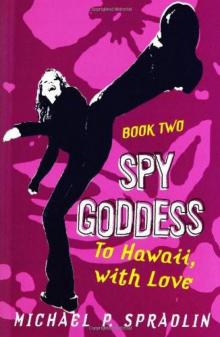 To Hawaii, with Love
To Hawaii, with Love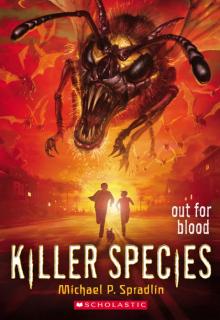 Out for Blood
Out for Blood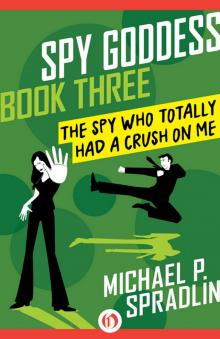 The Spy Who Totally Had a Crush on Me
The Spy Who Totally Had a Crush on Me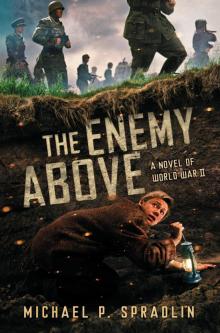 The Enemy Above
The Enemy Above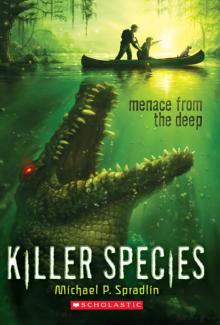 Menace From the Deep
Menace From the Deep It's Beginning to Look a Lot Like Zombies
It's Beginning to Look a Lot Like Zombies Feeding Frenzy
Feeding Frenzy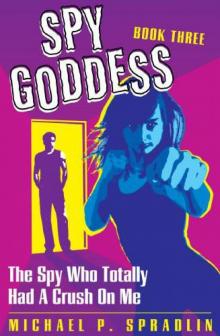 3 The Spy Who Totally Had a Crush on Me
3 The Spy Who Totally Had a Crush on Me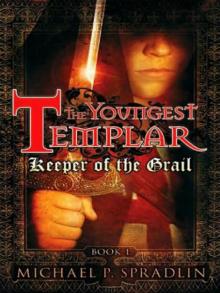 Keeper of the Grail
Keeper of the Grail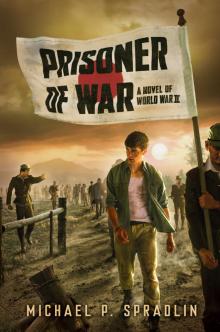 Prisoner of War
Prisoner of War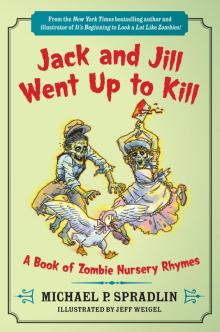 Jack and Jill Went Up to Kill
Jack and Jill Went Up to Kill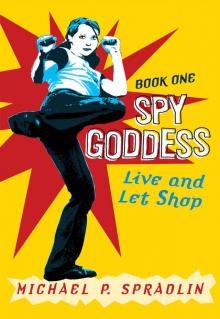 Live and Let Shop
Live and Let Shop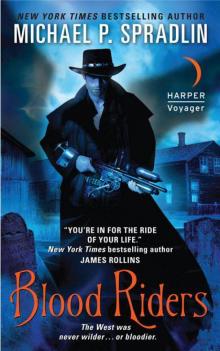 Blood Riders
Blood Riders Ultimate Attack
Ultimate Attack